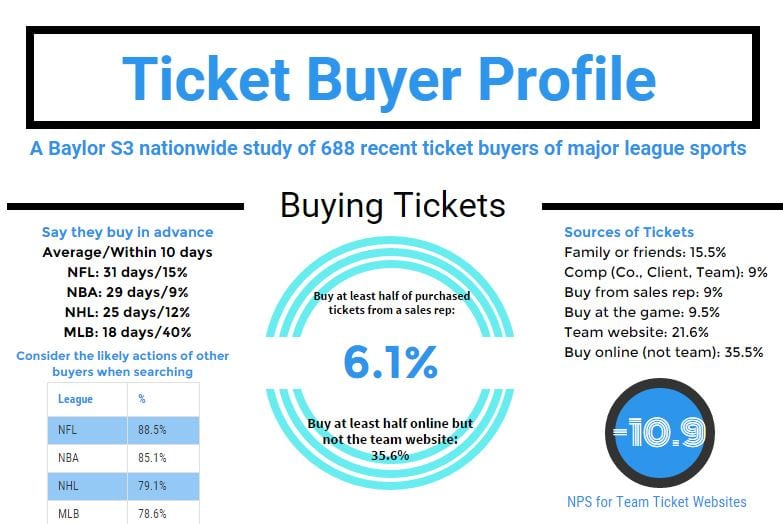by Kirk Wakefield -October 2016 Nationwide Study of Recent Online Ticket Buyers Efficient and effective salespeople convert ticket buyers into season ticket holders and serve their needs. However, the secondary market is the primary market for many fans who do not differentiate between buying from StubHub, TicketMaster or the team’s website. What do these buyers look…Continue Reading The Online Ticket Buyer: By the Numbers
The Online Ticket Buyer: By the Numbers



